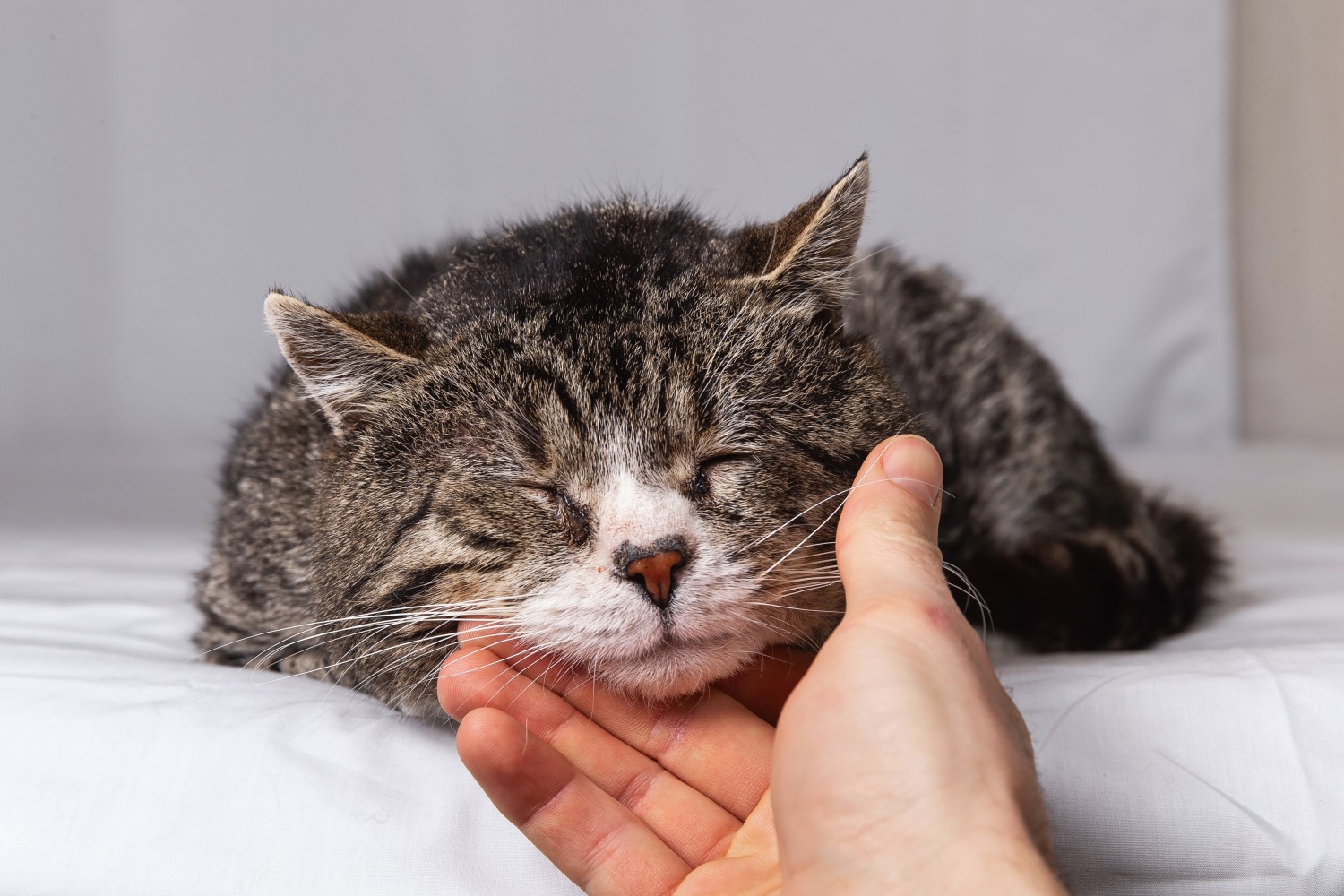Southside Animal Hospital
(517)882-6614
southsidevetlansing.com
|
Caring for Your Senior Pet
Thanks to advances in veterinary care and more attentive pet parenting, our beloved animals are living longer, healthier lives than ever before. As our furry companions enter their golden years, they continue to bring joy, comfort, and companionship into our lives—but they also need a little extra care and attention to help them stay comfortable and happy. Senior pets often develop age-related conditions that can affect their quality of life, such as arthritis, dental disease, changes in vision or hearing, and chronic illnesses. Regular wellness visits become even more important during this life stage, helping us catch early signs of illness, manage chronic issues, and maintain your pet's overall health and comfort. When Is My Pet Considered a Senior?Every pet is unique, and just like people, they age differently depending on factors like breed, size, genetics, lifestyle, and previous health history. There isn’t one exact age that marks the transition into seniorhood, but here are some general guidelines:
Of course, some pets may begin to show signs of aging earlier or later than these estimates, and we are here to support you every step of the way. What Changes and Health Problems Are Common in Senior Pets?As pets age, it’s natural to see some visible changes—like a graying muzzle or a slower pace on their daily walks. You may also notice a gradual decrease in their hearing or vision. While these changes are part of the normal aging process, there are also medical conditions that become more common in senior pets and may require veterinary attention:
Being aware of these common conditions allows us to monitor for early signs and offer supportive care and treatment that can significantly improve quality of life. Together, we can ensure your pet’s senior years are full of love, comfort, and connection. What Additional Care Does My Senior Pet Require?No matter how well cared for, senior pets are naturally more vulnerable to age-related health challenges. As they grow older, they benefit from a little extra attention, care, and monitoring to help them feel their best.
More Frequent Veterinary Visits We recommend senior pets receive a comprehensive physical exam every 6 months. Additionally, we suggest annual geriatric lab testing, which helps detect underlying issues such as organ dysfunction, hormonal imbalances, or early-stage disease. In some cases, more frequent testing and follow-up care may be needed based on your pet’s health.
Dental Care Dental disease is one of the most common health issues in aging pets—and one that can quietly affect their overall wellbeing. Dental problems may contribute to other diseases, like heart or kidney disease, and can cause chronic pain. We recommend regular dental exams and professional cleanings to keep your senior pet’s mouth healthy and pain-free.
Diet & Nutrition As pets age, their dietary needs often change. Senior pets may need more easily digestible food, and some benefit from diets that include anti-aging nutrients. Dr. Joyce is a certified veterinary nutritional counselor and can help guide you in selecting the right diet tailored to your pet’s age, breed, and specific needs.
Weight Management Maintaining a healthy weight is especially important in senior pets. Extra weight can worsen conditions like arthritis, liver disease, and heart disease. Conversely, unexpected weight loss could signal problems such as cancer or kidney disease. Please don’t hesitate to bring any weight changes to our attention—we’re here to help.
Home Comfort & Environmental Adjustments Simple changes at home can greatly enhance your senior pet’s comfort:
Mental engagement is just as important—gentle play, interactive toys, and quality time with you can help reduce anxiety and support cognitive health.
Senior Pet Wellness Checklist (Download) Click here to download our Senior Pet Wellness Checklist (PDF) Important End-of-Life Decisions for Our Senior PetsIt’s a true blessing that our pets are living longer and sharing more cherished years with us. But this gift also brings one of the most difficult chapters in pet ownership—navigating end-of-life care. These decisions are never easy, but you do not have to face them alone. Your veterinarian is here to provide guidance, support, and compassionate care as you consider your pet’s quality of life. We may use a quality-of-life scale to help objectively evaluate your pet’s day-to-day comfort. This tool, combined with observations like whether your pet is having more good days than bad, or how they’re responding to treatments, can help provide clarity during a time of emotional uncertainty. Keeping a journal of your pet’s progress is often helpful in recognizing trends and knowing when it may be time to have the conversation about hospice care or humane euthanasia. Every situation is unique, and the timing of such decisions is deeply personal. We will walk with you through the process with empathy and honesty. For more information, please visit our End-of-Life Care page, where you’ll find:
You and your beloved pet are never alone in this journey. We are here to help provide peace, comfort, and love—every step of the way.
|







